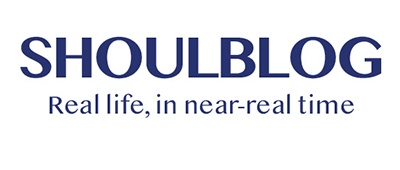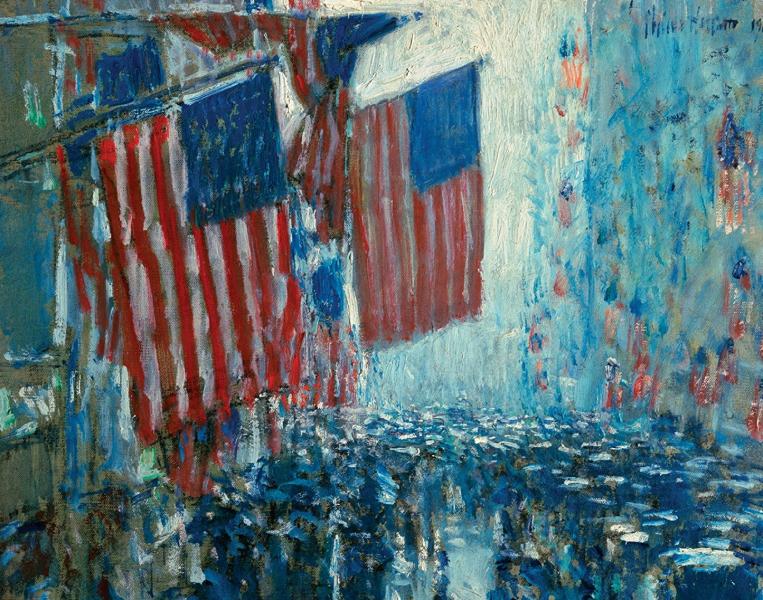It’s been almost two years since I wrote one of these last five/next five book lists. A lot more than five books have gone down in that time; there’s no “catching up” here. But let’s jump in for a snapshot of where we are today. The last five books I’ve read, oldest to most recent:
 The Soul Of America by Jon Meacham. If you watch Morning Joe—which I do, almost every day (although I do think Morning Joe is about 100 percent better when Joe’s not on)—then you know Jon Meacham. A professor of history at Vanderbilt University and a Pulitzer-Prize-winning history author, he always brings a great perspective to discussions about U.S. politics, particularly presidential politics.
The Soul Of America by Jon Meacham. If you watch Morning Joe—which I do, almost every day (although I do think Morning Joe is about 100 percent better when Joe’s not on)—then you know Jon Meacham. A professor of history at Vanderbilt University and a Pulitzer-Prize-winning history author, he always brings a great perspective to discussions about U.S. politics, particularly presidential politics.
This book is a look back at how various presidents have handled national crises during their administrations, dating back to Lincoln and the Civil War, and how their actions shaped our concept of what America can and should be. I found it fascinating, particularly the era of Reconstruction through the first World War, a time period I’m admittedly not very knowledgeable about.
My Goodreads rating: 5 stars.
(A note on Goodreads ratings: I’ll admit it, my Goodreads ratings might be a little inflated. Maybe it’s a psychological thing whereby I subconsciously want to justify the time I spent reading the book. This is not an apology; but just be aware. More discussion on this here.)
 Process: The Writing Lives of Great Authors by Sarah Stodola. This could have been a good book.
Process: The Writing Lives of Great Authors by Sarah Stodola. This could have been a good book.
I know from personal experience that writing can be very hard work, and it can sometimes be difficult to organize your life in a way that you have both the time and the ability to write. Because time is one thing, but it’s always hard to tune out the rest of life to be able to focus on the words. I’m in complete awe of people who are able to pull it off and make careers out of writing fiction, and I’m always curious about how they do it.
That’s what this book is about, examining the daily lives of some great authors to find out how they worked, and when and where they fit their writing time into their daily life. Great concept, and it was interesting to read about Hemingway and Fitzgerald and Kafka and Orwell and Atwater. However, there were a lot of authors I would have enjoyed hearing about, particularly some more contemporary ones: most of the current authors she chose were people I wasn’t really familiar with, and the subjects not all that interesting. So while it was a great concept, it ultimately fell short of what it could be, in my opinion.
My Goodreads rating: 3 stars.
 The Destiny Thief by Richard Russo. Now HERE’s a writing book I got into. Russo is perhaps my favorite author right now. In fact, if this post was about my last SIX books rather than my last five, his new novel, Chances Are … would have been on the list. I didn’t love Chances Are … like some of his others, but I always enjoy his writing style.
The Destiny Thief by Richard Russo. Now HERE’s a writing book I got into. Russo is perhaps my favorite author right now. In fact, if this post was about my last SIX books rather than my last five, his new novel, Chances Are … would have been on the list. I didn’t love Chances Are … like some of his others, but I always enjoy his writing style.
This book, on the other hand, was nonfiction, a series of essays, mostly but not all about writing and/or reading. And more than any other book I’ve read, this one made me want to go back to school and get my MFA. Because even though I seem to write about books and reading an awful lot here in Shoulblog, there’s so, so much more that I haven’t read. As the saying goes, I don’t even know what I don’t know.
Anyway, highlights from this collection include the title essay, in which Russo is contacted by an old classmate, one who, when they were in school, seemed to have much more promise as a writer; his commencement speech to the Colby College class of 2004; and a great story about a writer’s conference in Bulgaria that he attended with some trepidation, but ended up being rescued by a Bruce Springsteen song. All written in his wry, easy-going style. I’m looking forward to reading the rest of Russo’s books that I haven’t gotten to yet.
My Goodreads rating: 5 stars.
 Bastard Out Of Carolina by Dorothy Allison. Three nonfiction books in a row, so I needed some fiction. This one has been on my to-read list for several years, but I’d always understood it to be not exactly a summer beach read. And that understanding proved to be correct. This is a book about child abuse—physical, sexual, emotional—and it was a difficult book to read. And yet it’s so well-written that it’s even harder to put it down.
Bastard Out Of Carolina by Dorothy Allison. Three nonfiction books in a row, so I needed some fiction. This one has been on my to-read list for several years, but I’d always understood it to be not exactly a summer beach read. And that understanding proved to be correct. This is a book about child abuse—physical, sexual, emotional—and it was a difficult book to read. And yet it’s so well-written that it’s even harder to put it down.
You hear about victims of abuse blaming themselves, thus allowing their abuser to keep tormenting them. This story, told from the point of view of the victim, demonstrates that masterfully.
The edition I read has a fascinating afterword written by the author, in which she discusses the impacts of the book in the 20 years since it was published, including efforts by some school districts to ban it.
“Stories open the door to the darkened room,” she writes in the afterword. “Language can carry us past the horror to the sense of purpose in a life that refuses to surrender to that darkness.”
My Goodreads rating: 5 stars.
 The Walrus Was Paul: The Great Beatle Death Clues by Gary Patterson. I can remember when my brother Jim showed me the cover of Abbey Road—this was when the album was fairly new and I was 10 or 11 years old—and explained to me the hidden meaning about the clothes the four Beatles were wearing, and the other hints on the cover about Paul McCartney’s supposed death. It’s a cute gimmick, the band having a little fun with their fans.
The Walrus Was Paul: The Great Beatle Death Clues by Gary Patterson. I can remember when my brother Jim showed me the cover of Abbey Road—this was when the album was fairly new and I was 10 or 11 years old—and explained to me the hidden meaning about the clothes the four Beatles were wearing, and the other hints on the cover about Paul McCartney’s supposed death. It’s a cute gimmick, the band having a little fun with their fans.
I thought, when I found this book in a bargain bin some years ago, that it might make for a fun read, a compilation of all the supposed clues the Fab Four left over the years.
Not so much. This book, it turns out, was not so much about the Beatles but about their way-too-imaginative fans. It’s basically just a compilation of the most outlandish ideas people had about clues the Beatles had supposedly sprinkled in their albums. Some of the theories in here would make a 9/11 truther say “wait a minute, isn’t that a little far-fetched?”
For example, here’s a paragraph, not about McCartney but about John Lennon:
“Lennon’s references to the ‘Number 9’ became an obsession with him. The numeral played a pivotal role in his life and began with his birth on October 9, 1940 at 6:30 p.m., until his untimely death on December 8, 1980 at 11:07 p.m. Eerily, both 6:30 p.m. and 11:07 p.m. add up to nine. If you take into consideration the five hour time difference between England and New York, John Lennon’s death would have been officially announced on December 9, 1980 in Great Britain.”
I kid you not.
The book could have been worthwhile if it included some insider info from the Beatles themselves or others who were involved in the “Paul is dead” hoax. Instead, it reads like a fan zine written by Alex Jones.
One other thing: This book has a Foreword, Acknowledgements, an Introduction and a Prologue before Chapter 1. After the body of the book, there’s a stupid “Ultimate Beatle Death-Clue Quiz,” an Appendix, a Bibliography and an Index. Drop the extra material, and you don’t have a book; you have a long essay. Which, I guess, is a blessing.
My Goodreads rating: 1 star (Like I said, sometimes I give books higher ratings than they deserve).
The Next Five
Here’s the part where I always fail. I try to predict the next five books that I’ll read, but every time I’ve tried this in the past, I’ve been off the mark. Life happens, moods change, exciting new books pop up. Given the enormous number of books on my virtual bedside table—I have hundreds of books in my Kindle library that I haven’t yet read—this kind of a prediction is an educated guess, at best.
So here’s my best guess at what comes next:
Writing Places: The Life And Journey of a Writer and Teacher by William Zinsser. This one’s not a guess—I’m already halfway into it.
Becoming by Michelle Obama. This one’s been waiting for a few months. It’s about time to read it, before her husband comes out with his book.
Faceless Killers by Henning Mankell. I’ve been wanting to get into this Swedish author—who shares that somewhat unusual first name with my paternal grandfather—for a while; why not start with the first book in his most successful series of detective novels?
She’s Not There: A Life In Two Genders by Jennifer Finney Boylan. One of the essays in Russo’s The Destiny Thief, above, is the foreword for this book.
Infinite Jest by David Foster Wallace. This is said to be a challenging book. Well, by the time I get to it, it’ll be 2020, and 2020 is shaping up to be a challenging year; I think we can even call it the Year of the Challenger. So let’s give it a shot, eh?
Looking Back
Here are previous last-five-next-five-books lists on Shoulblog:

